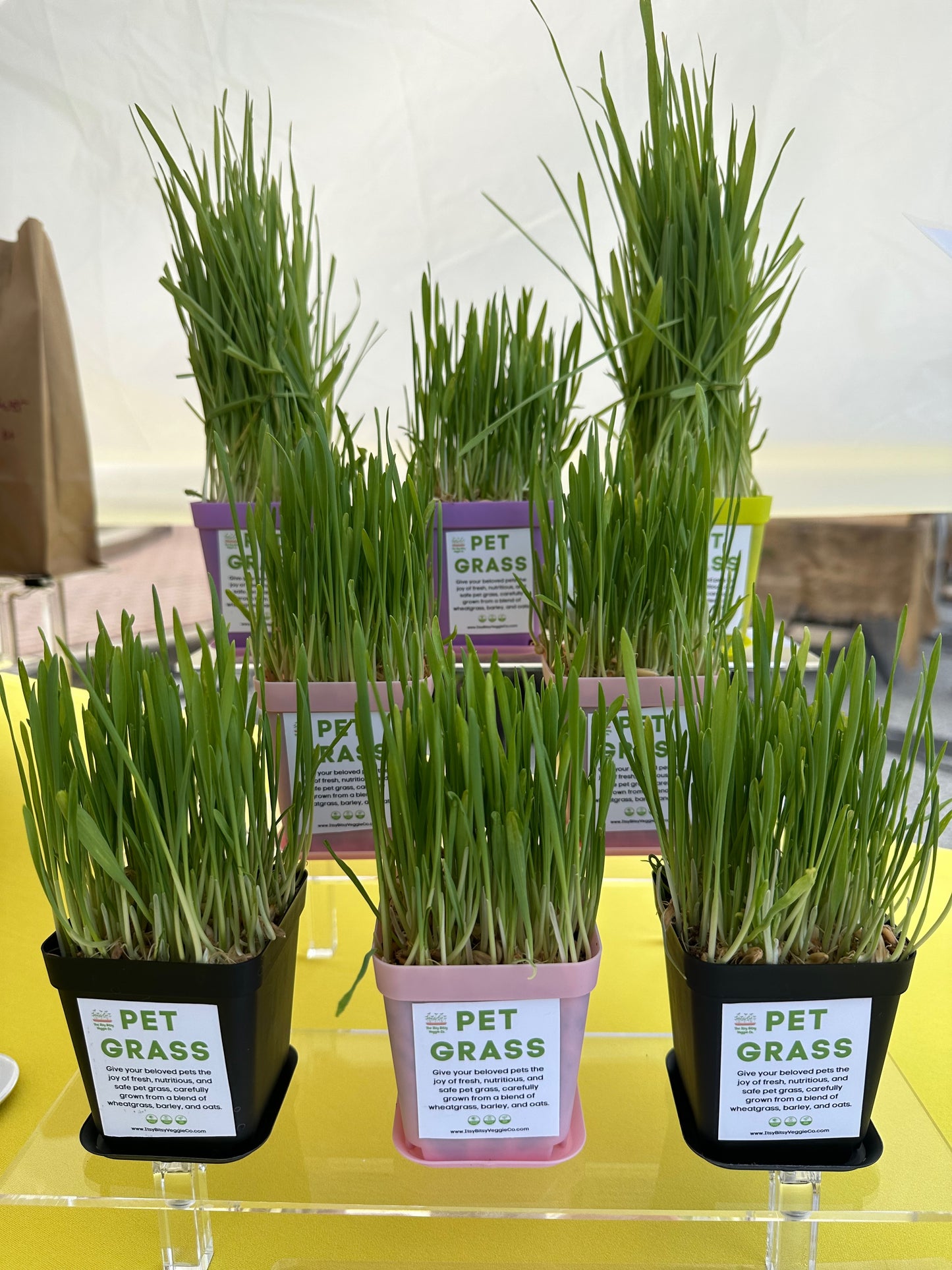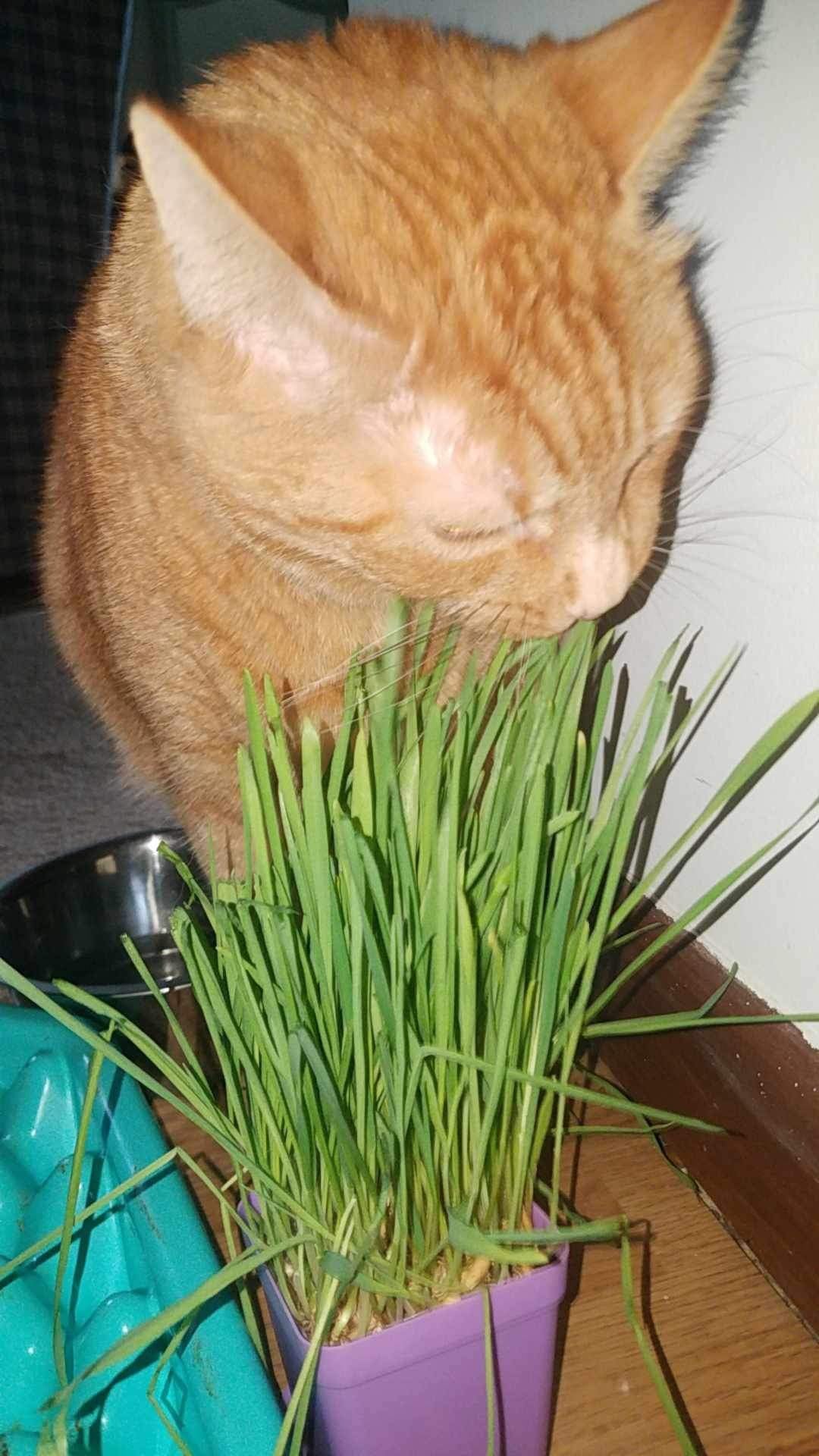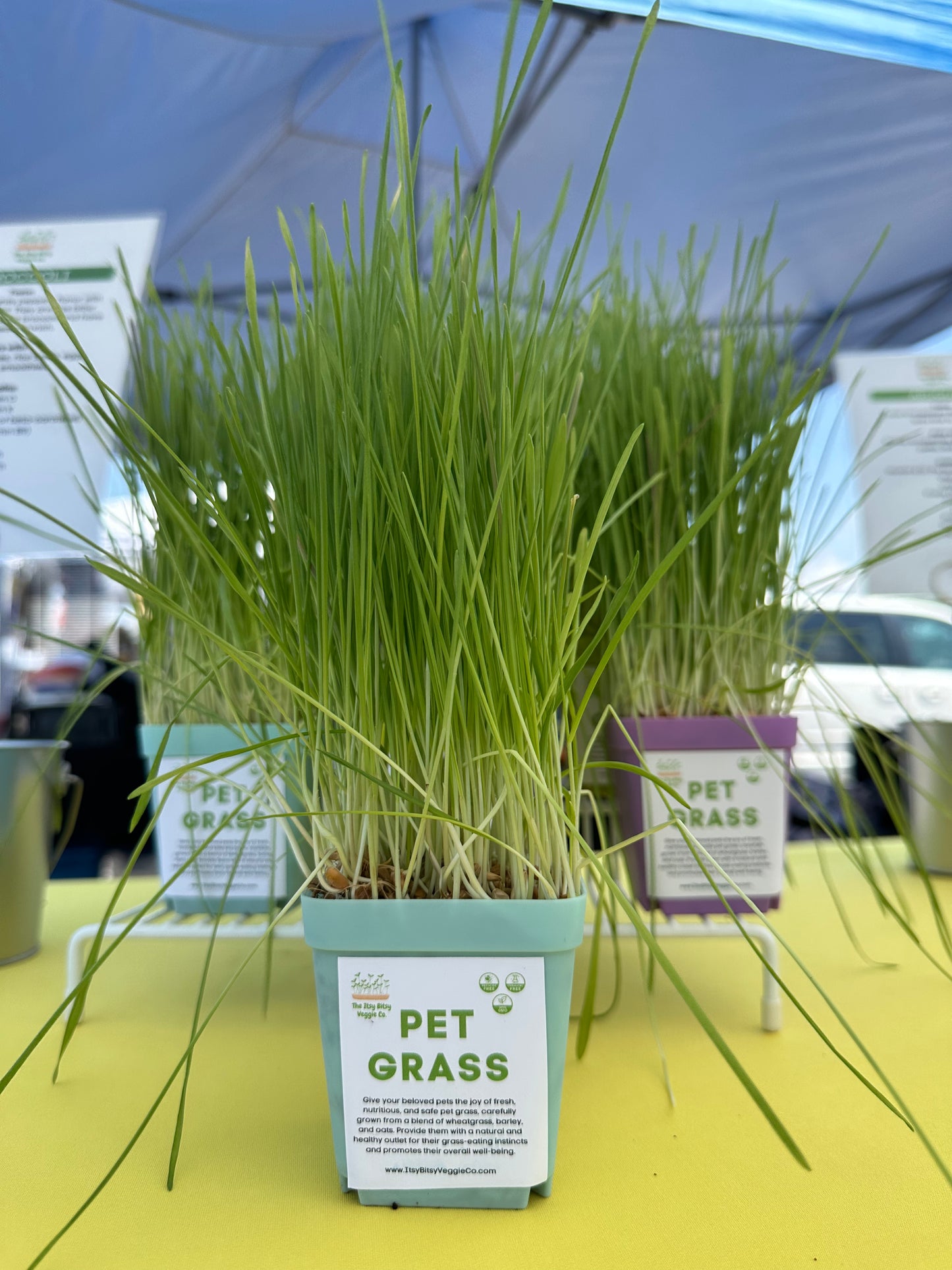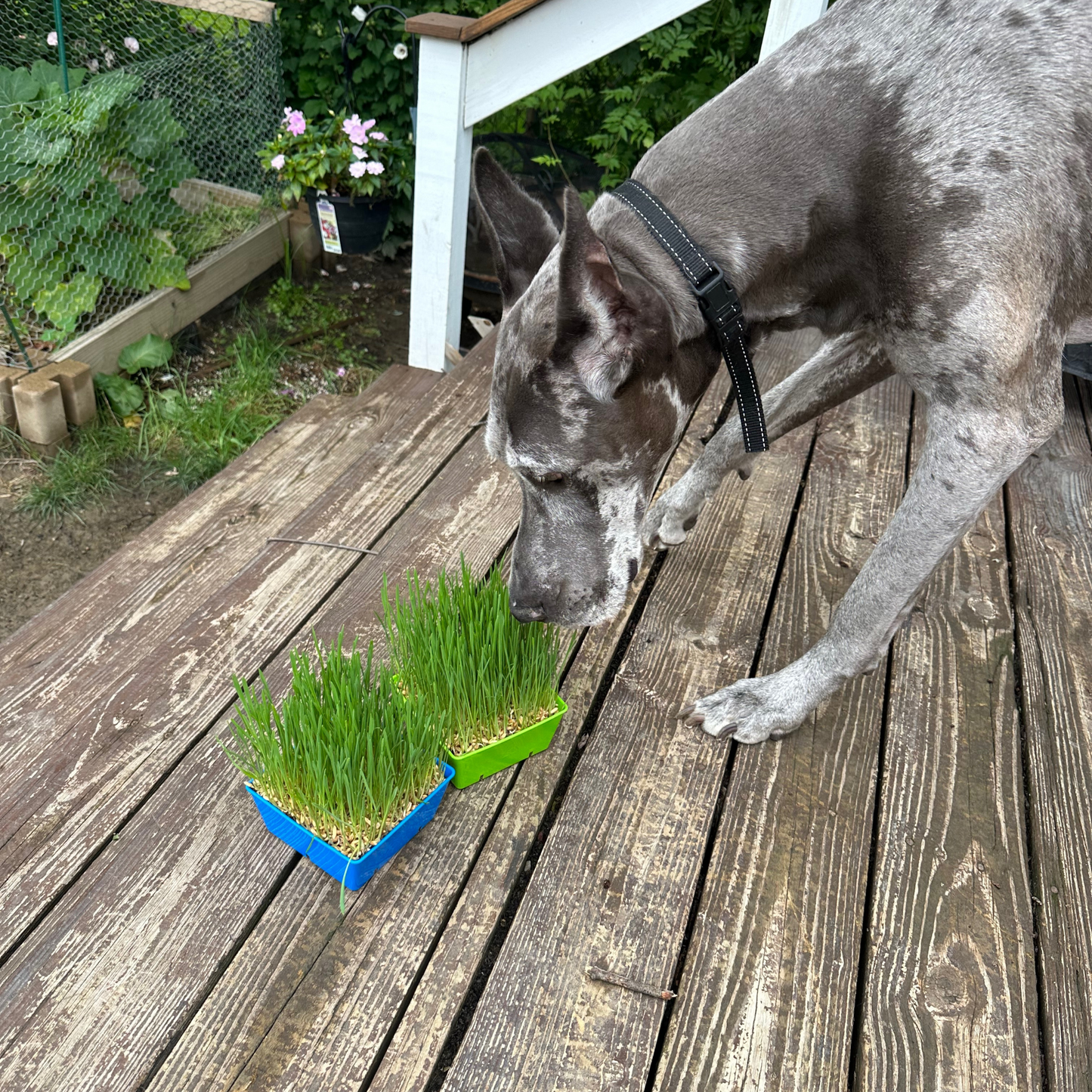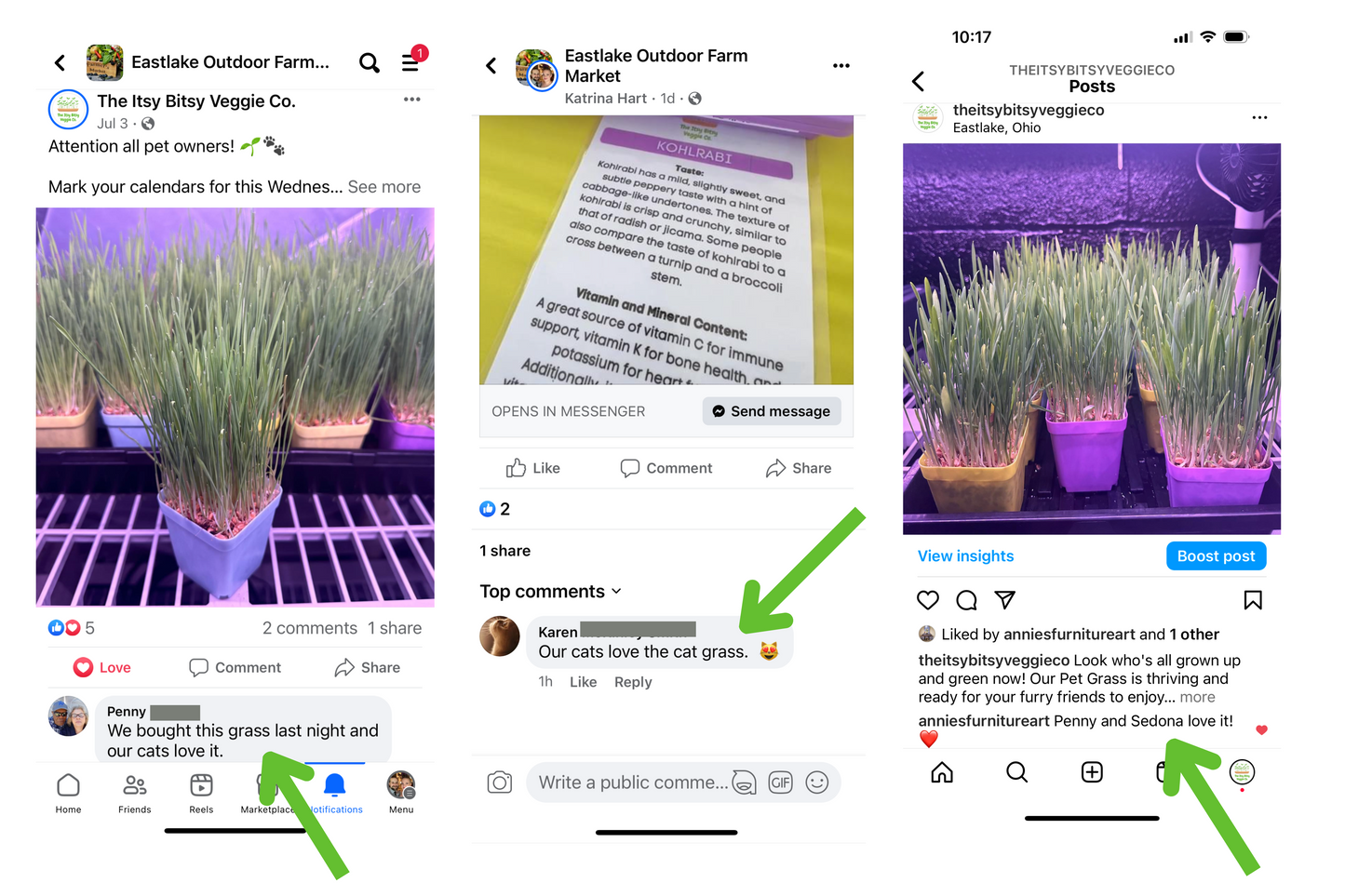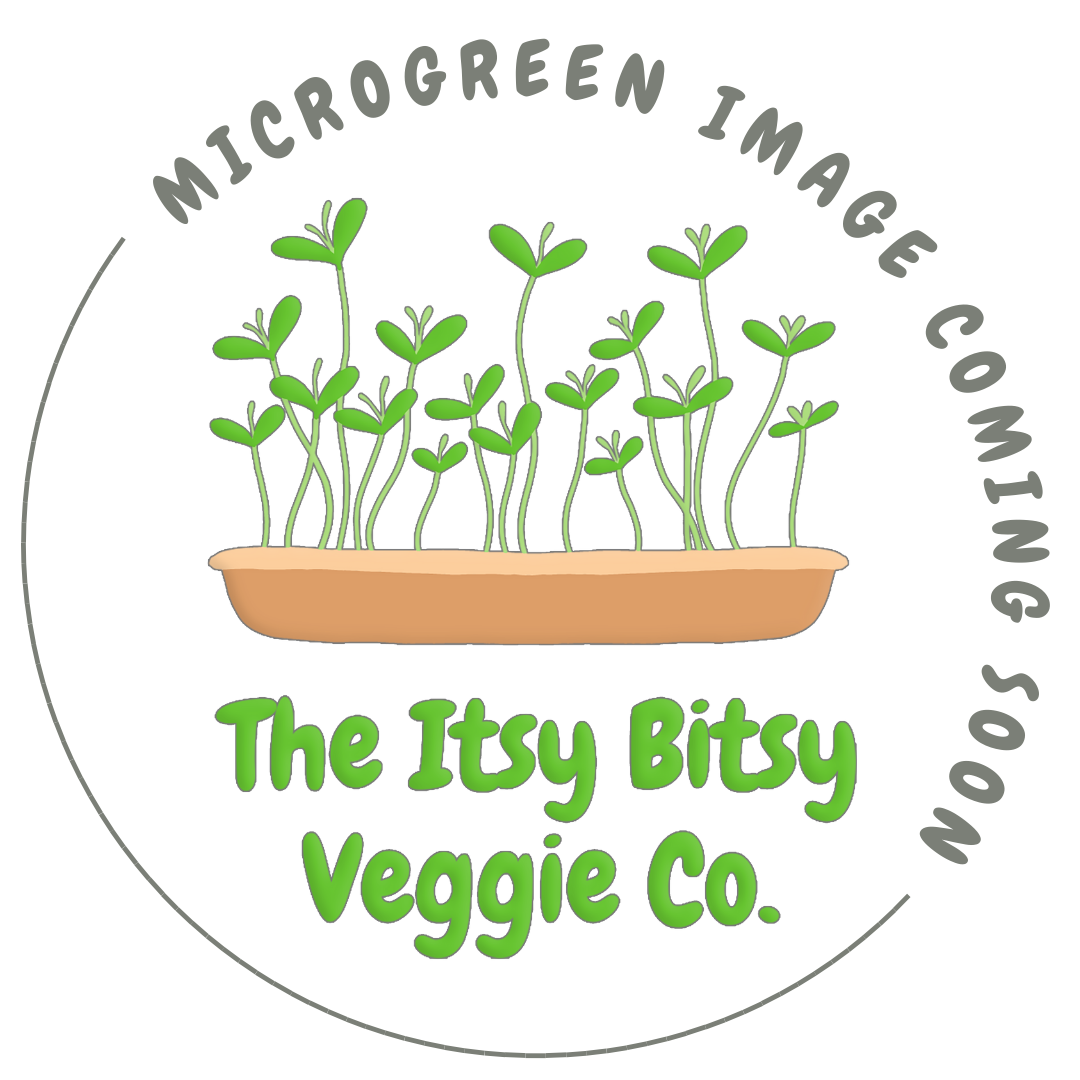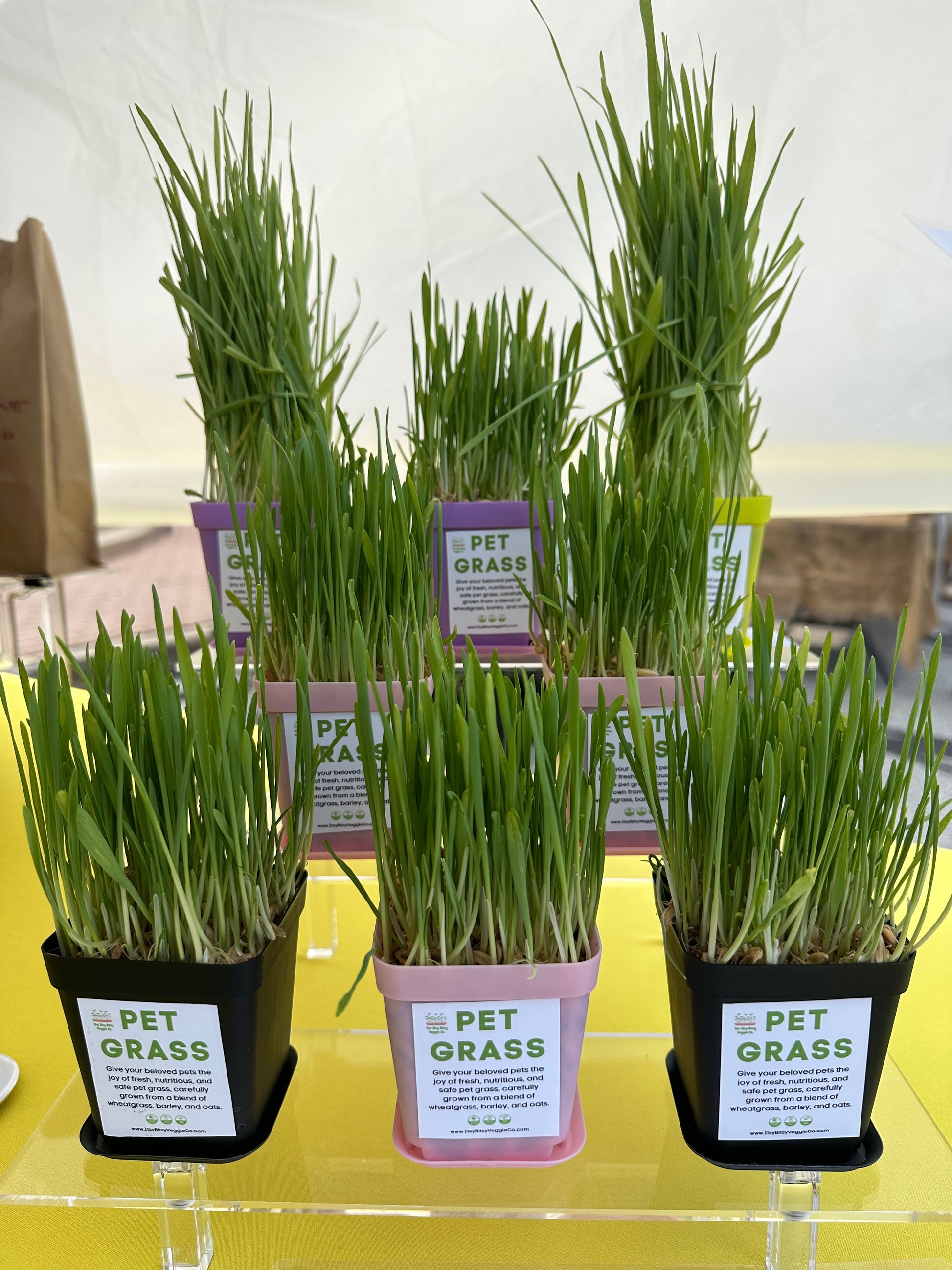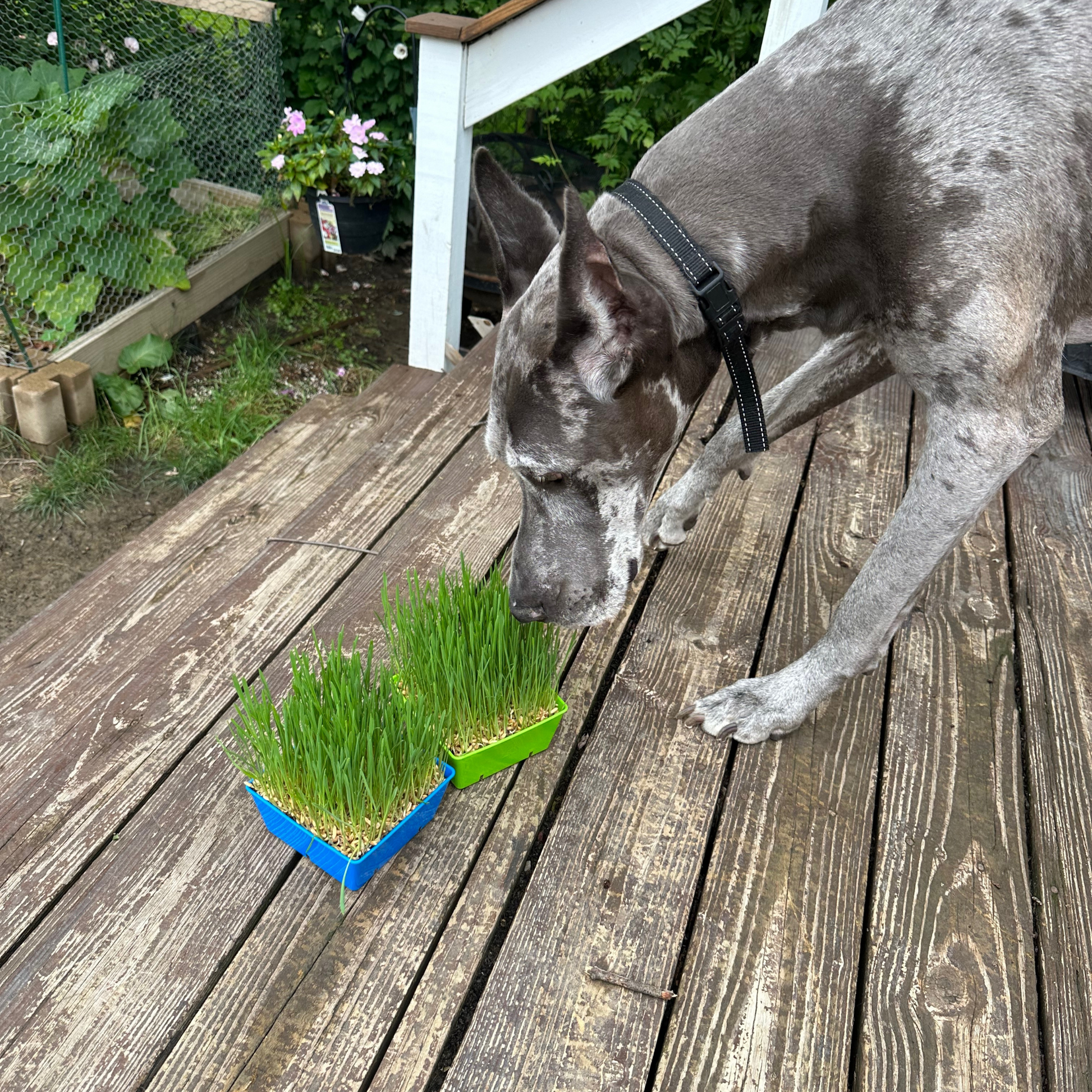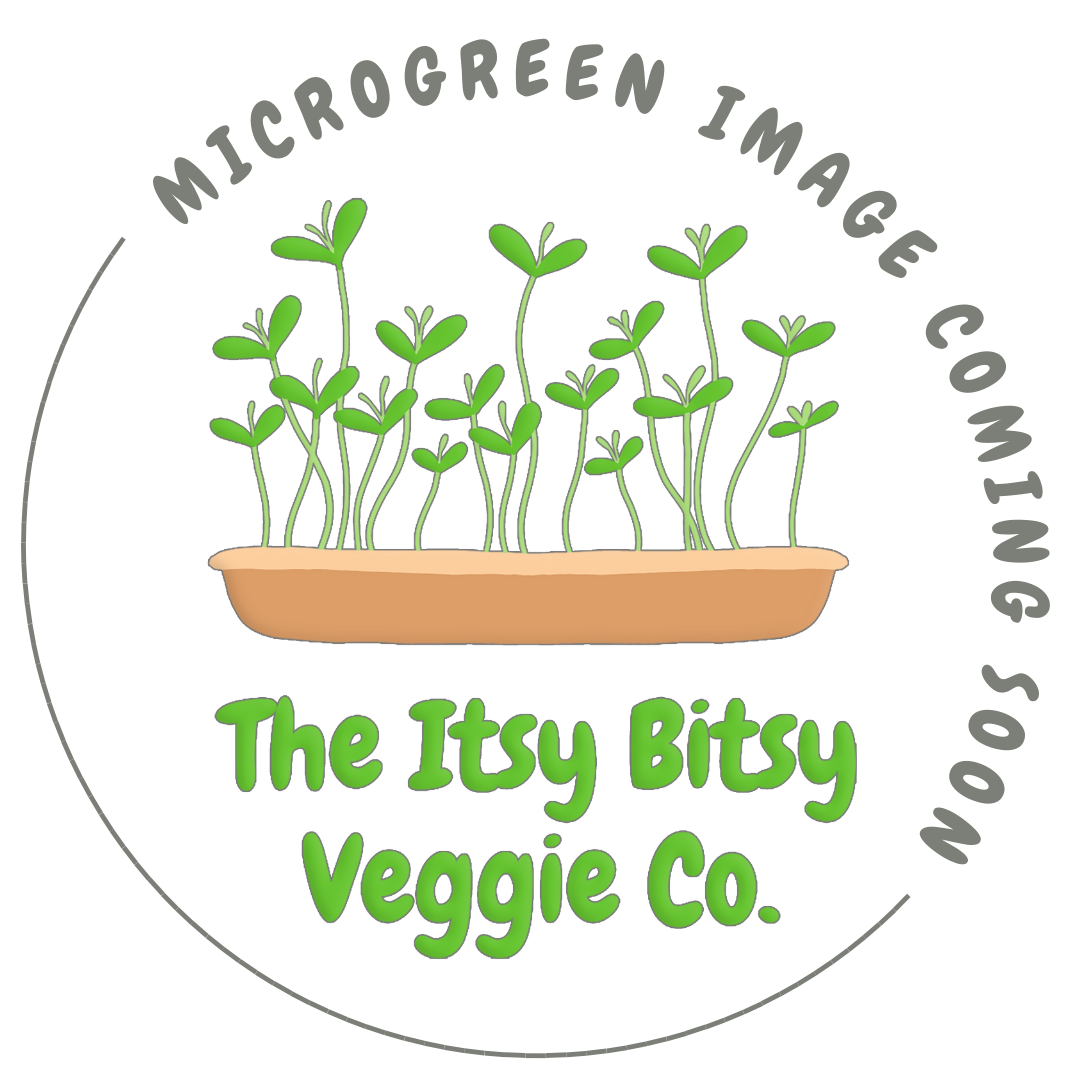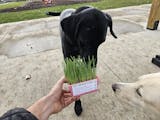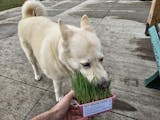Pet Grass
Pet Grass
5.0 / 5.0
(2) 2 total reviews
Couldn't load pickup availability
A blend of wheatgrass, barley, and oats.
-
Wheatgrass:
- High in Chlorophyll, which may help with detoxification and promoting a healthy pH balance in pets.
- Rich in Antioxidants, which can protect your pet's cells from oxidative damage.
- Contains Essential Vitamins like A, C, and E, supporting overall health and immune function.
-
Barley:
- Abundant in Fiber, aiding digestion and promoting regular bowel movements in pets.
- Good Source of B Vitamins, supporting energy metabolism and promoting a healthy coat and skin.
- Contains Essential Minerals like Calcium, Iron, and Magnesium, promoting strong bones and overall well-being.
-
Oats:
- High in Protein, supporting muscle development and tissue repair in pets.
- Rich in Soluble Fiber, helping to maintain stable blood sugar levels and promoting heart health.
- Contains Beta-Glucans, which may support a healthy immune system in pets.
Fun Fact: Your Pet Grass blend of wheatgrass, barley, and oats provides a natural and nutrient-rich supplement for your furry friends. The combination of these wholesome grains offers a range of vitamins, minerals, and beneficial compounds, making it an excellent addition to your pet's diet!
Small - 2.5x2.5 inches
Large- 5x5 inches
*Sustainability matters to us. Return your large pet grass container and get $1 off your next purchase!
How Much Pet Grass Should a Cat or Dog Eat?
🐱 Cats – Typically, a few bites or 1-2 inches of grass per sitting is enough. Cats naturally nibble on grass to aid digestion, help with hairballs, or supplement nutrients they may be missing.
🐶 Dogs – Larger dogs may eat a few blades at a time, while smaller dogs may only need a nibble. Some dogs will instinctively chew on grass when they need digestive relief, but it’s best to offer in moderation.
What Happens If They Eat Too Much?
If a cat or dog overindulges in pet grass, it can lead to:
🚨 Mild digestive upset – Excessive grass consumption may cause vomiting or loose stools since their stomachs are not designed to break down large amounts of plant matter.
🚨 Choking hazard – Eating long blades too quickly without chewing can cause gagging or minor irritation.
🚨 Blockages (Rare) – In extreme cases, eating too much fibrous plant material could lead to an intestinal blockage, though this is uncommon.
How to Offer Pet Grass Safely
✅ Provide small amounts and observe how your pet reacts.
✅ Trim long blades to 1-2 inches to prevent gagging.
✅ Offer occasionally as a treat or digestive aid rather than a meal replacement.
Pet grass is a healthy, safe addition to your pet’s routine when given in moderation!
Share
